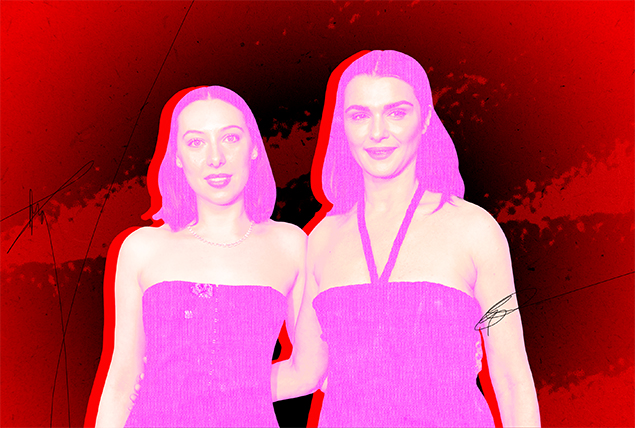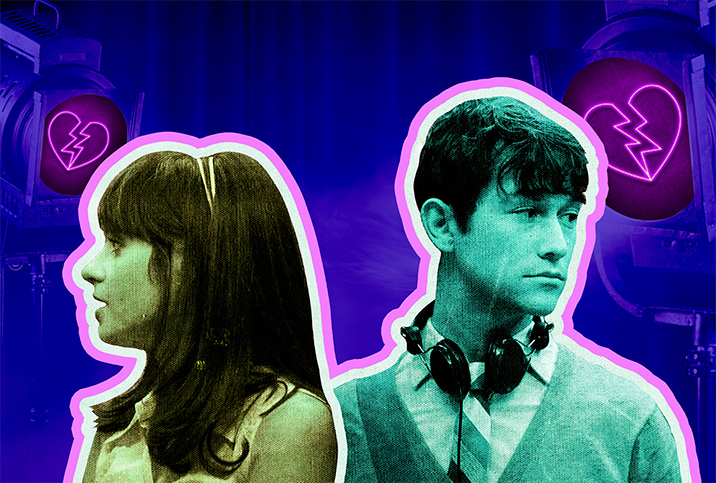Is Amazon's 'Dead Ringers' a Reflection of Reproductive Health Realities?

David Cronenberg's 1988 movie, "Dead Ringers," is a psychological thriller in which the Mantle twins, both played by actor Jeremy Irons, are chief physicians at a women's reproductive center. Like so much in the media, what's old is new again, as the story was adapted for streaming. This time, actor Rachel Weisz doubles up in the starring roles of the twin gynecologists. The show debuted on April 21 on Amazon Prime.
The twins may have undergone a gender swap in the new series, but the adaptation keeps the original's psychosexual chemistry and dark ambiance.
While there are similarities to the original—including the Freudian tension and co-dependent nature of the twins—there is one notable difference. In the 1988 version, in true Cronenberg fashion, a measure of body horror was included. The shy twin, Beverly, descends into a psychotic break and his patients' reproductive organs are shown evolving before his eyes—to the point that he invents new medical tools to operate on the new female anatomy.
Editor's note: There are spoilers ahead.
The body horror inherent in birth
The latest "Dead Ringers" has eliminated phantom organs and the delusional imaginings of the female reproductive system, but it has kept the body horror element of the original film. Less than 10 minutes into the show, viewers see a sequence of graphic birthing scenes—some cesarean section, others vaginal—filled with bloody moments of anguish.
The writers are saying body horror is inherent in the reproductive experience. There's no need to include the changing womb narrative from the movie. For the new series, the horror is focused solely on the reality of reproductive health and a healthcare system that regularly underplays women's pain.
In the first episode, Beverly and Elliot are working in a crowded hospital, and it is here we see the most violent realities of healthcare services.
One scene shows a Black woman in severe pain who is consistently dismissed by the care team around her. This is representative of ongoing statistics in the United States and United Kingdom healthcare systems, where Black women are four times more likely to die during pregnancy than white women.
The racial bias that leads to the dismissal of Black women's pain is explicitly highlighted in "Dead Ringers" as, despite the patient expressing her pain, her symptoms go untreated for hours, with deadly consequences.
The inherent racism of the show's medical institution is not forgotten in the storyline. Further into the season, a ghostly apparition tells viewers the story of a slave, Anarcha Westcott, who was tortured repeatedly in the name of gynecological research.
Improving our reproductive care
During our introduction to the Mantle twins, their hard-working schedules and the visceral reality of childbearing, the audience experiences the quality of care within the medical system as it stands.
In an early emotive monologue, Weisz describes the system as one "that bullies and scares and terrorizes and humiliates and rushes and ruins women and their bodies."
We know childbirth is devastating to women's bodies, but this is not necessarily the way it has to be.
The Mantle twins have a long-term goal to open their own birthing center. It would prioritize pregnant patients and save them from the pain inflicted by the misogynistic and racial biases of the medical institution at which they practice. But to do this they must solicit private funding.
Beverley, the more naïve of the two sisters, wants to make radical changes to reproductive healthcare practices, but her ethical plans for wide access fall on deaf ears. The Mantle twins are invited to dinner with a potential investor, Rebecca Parker, a powerful figure in the medical world and clearly inspired by the real-life Sackler family of opioid fame.
Beverley's motivational words attempt to demonstrate the difference her birthing center could make to women's healthcare. Parker is not interested in accessibility. She just wants to know how profit can be maximized.
Elliott Mantle eventually steps into secure funding with her promise to delay the onset of menopause.
Once the birthing center is finally opened, it appears to be the utopia Beverley imagined. Every patient now has a bespoke service catering to their unique needs and it is going well.
However, by accepting Parker's money, they have forfeited the accessibility and equality they initially hoped for. It is clearly a center for the wealthy and has the feel of commercialized wellness rather than medical care. The patients are rebranded as guests, and on arrival, each one is offered a smoothie tailored to their hormonal needs.
They are no longer in an overcrowded hospital, but patients who enter the Mantle twins' center still lose their privacy thanks to the large viewing windows in every ward.
Women's health vs. profit
Benefactors come and go to watch as the Mantle twins do what they do best: deliver babies. Parker plans to open centers fast across the states, but the red flags are clearly visible. And despite Beverley's ideological wishes, women's health is no longer the priority. The end game is about profit.
"Dead Ringers" exemplifies with terror, gore and brutal realism the dark truths of the perspectives toward women's health. Through the Mantle twins' eyes, the audience continuously encounters partners of patients, Big Pharma investors and doctors who fail people in their care, due to an ongoing mindset around reproductive care.
Childbirth is perceived as a violent act and, therefore, it inevitably continues to be so.
Beverley is correct when she declares that radical change in the way reproductive healthcare is administered would be world-changing. But "Dead Ringers" asks: In the capitalist world we live in, is this even possible?


















